The Nigeria Football Federation (NFF) finds itself at a pivotal crossroads in its quest to select the next head coach for the nation’s beloved Super Eagles. With Finidi George’s departure still fresh in the minds of football fans, the NFF has cast its net wide, eyeing a handful of seasoned tacticians to take the helm and steer Nigeria back to footballing glory.
Leading the pack of potential candidates is Hervé Renard, a name synonymous with success in African football. The charismatic Frenchman’s track record speaks volumes, having guided both Zambia and Ivory Coast to Africa Cup of Nations triumphs. Renard’s potential appointment has set tongues wagging across Nigeria, with supporters and pundits alike pondering the impact he could have on the Super Eagles’ fortunes.
Renard’s ability to transform underdog teams into continental champions has not gone unnoticed. His tactical acumen, coupled with a knack for inspiring players to perform beyond their perceived limits, makes him an enticing prospect for the NFF. The Frenchman’s experience in African football could prove invaluable in navigating the unique challenges that come with managing a team on the continent.

However, Renard’s potential appointment is not without its complications. Currently at the helm of the French women’s national team, his availability hinges on the conclusion of the upcoming Paris Olympics. This timing mismatch poses a significant hurdle for the NFF, given that the 2025 Africa Cup of Nations qualifiers loom on the horizon, set to kick off in September and the gaffer will need to have, at the very least, familiarised himself with the squad by that time.
Moreover, Renard’s financial demands present another stumbling block. Reports suggest he is seeking a monthly salary of $180,000, a figure that would make him the highest-paid coach in Nigerian football history. This astronomical sum has raised eyebrows and questions about the NFF’s ability to foot such a bill without substantial government support.
While Renard’s candidacy dominates headlines, the NFF has kept its options open. Antonio Conceição, the former Cameroon national team coach, has emerged as another strong contender for the Super Eagles hot seat. The Portuguese tactician’s stint with the Indomitable Lions was marked by defensive solidity and tactical flexibility, attributes that could address some of the Super Eagles’ recent shortcomings.
Conceição’s familiarity with African football, coupled with his experience in managing high-pressure tournaments, makes him an attractive option. His ability to organise a team defensively while still allowing for creative expression in attack could be the formula needed to balance Nigeria’s talented squad.
The third name in the mix is Laurent Blanc, a figure who needs little introduction in footballing circles. The former France and Paris Saint-Germain manager brings a wealth of experience from the highest echelons of European football. Blanc’s tactical sophistication and his track record of nurturing young talent could be transformative for the Super Eagles, potentially elevating the team’s style of play to new heights.
Blanc’s potential appointment would signal a bold move by the NFF, bringing in a coach with a global reputation to oversee the national team. His experience in managing star-studded squads could be particularly beneficial in handling Nigeria’s array of talents plying their trade in top European leagues.
Joining this illustrious list of candidates is Eric Chelle, the former Mali national team coach. Chelle’s recent experience with African football and his understanding of the continent’s unique footballing landscape make him an intriguing option for the NFF. His work with Mali, a team known for punching above its weight, demonstrates his ability to maximise resources and cultivate a strong team spirit – qualities that could serve the Super Eagles well.
Chelle’s tactical flexibility and his knack for developing young talent align well with Nigeria’s current squad composition. His appointment could signal a blend of continuity and innovation, building on the existing strengths of the team while introducing fresh tactical ideas.
The NFF faces a delicate balancing act as it deliberates on these options, with the clock ticking relentlessly towards the upcoming qualifiers. The federation must secure a top-tier coach while ensuring they are in place in time to prepare the team adequately for the challenges ahead.
The selection criteria extend beyond mere coaching credentials. The NFF must consider factors such as cultural fit, adaptability to the African football landscape, and the ability to manage the unique pressures that come with leading one of the continent’s footballing giants currently experiencing a disappointing turn of form. The chosen candidate will need to navigate not only tactical challenges but also the high expectations of a football-loving nation.
Financial considerations will inevitably play a crucial role in the decision-making process. With Renard’s hefty wage demands setting a high bar, the NFF must weigh the potential returns on such an investment against the constraints of their budget. The possibility of securing additional funding from the government or private sponsors could expand their options, but it also introduces another layer of complexity to the negotiations.
The strategic implications of this coaching appointment cannot be overstated. The Super Eagles find themselves at a critical juncture, with the disappointment of missing out on the 2022 World Cup joined to the dismal display in the qualifying series for the next World Cup. The new coach will be tasked not only with qualifying for major tournaments but also with crafting a playing style and team identity that can compete with the best in Africa and beyond.
For the players, the arrival of a new coach represents both an opportunity and a challenge. Established stars will need to prove themselves anew, while emerging talents will see a chance to stake their claim for a regular spot in the team. The chosen coach’s ability to blend youth and experience, local and foreign-based players, will be crucial in building a cohesive and competitive squad. The choice will shape the Super Eagles’ trajectory for years to come, influencing everything from playing style to player development and tournament performances.
The Federation’s decision will be scrutinised from every angle, with supporters and critics alike ready to weigh in on the merits of their choice. In a nation where football is more than just a sport, where the round leather game has taken the role of a unifying force and a source of national pride, the stakes could not be higher.
Whichever direction the NFF chooses, be it the proven African success of Renard, the tactical nous of Conceição, the European pedigree of Blanc, the fresh perspective of Chelle, or whichever other choice they settle for, the next Super Eagles coach will step into a role laden with expectation and potential. They will inherit a squad brimming with talent, a passionate but dismayed fan base, and the weight of a nation’s footballing dreams.
Nigerian football stands on the cusp of a new era as the search continues. The right appointment could catapult the Super Eagles back to the pinnacle of African football and beyond. Conversely, a misstep could set the team back, continuing an era of decline and dashing the hopes of millions of fans who take consolation in the joys the sport provides.
The Federation must be reminded that the choice is crucial as the chosen coach will need to hit the ground running, with little time to spare before the qualifiers resume. They will need to quickly assess the squad, implement their vision, and galvanise the team around a common goal.
Speculation runs rife among fans and pundits alike. Each candidate brings their own strengths and potential drawbacks, and opinions are divided on who would be the best fit for the Super Eagles. Some argue for the African expertise of Renard, Conceição, or Chelle, while others are enticed by the European top-flight experience of Blanc. What other options the Federation is considering will also have pros and cons.
The NFF must also consider the long-term implications of their choice as they deliberate. The next coach will not only be responsible for immediate results but also for laying the groundwork for sustained success. This includes developing young talents, establishing a consistent playing style, and building a team culture that can withstand the pressures of international football.
Therefore, whoever gets the nod will step into one of the most prestigious and challenging roles in African football, tasked with returning the Super Eagles to their rightful place among the continent’s elite. One thing remains clear as speculation and anticipation continue: the future of Nigerian football hangs in the balance. The NFF’s decision will reverberate through the sport for years to come, shaping the dreams and aspirations of a football-loving nation. All that is left now is to wait, watch, and hope that when the whistle blows for the next Super Eagles match, a new era of success will dawn for Nigerian football.
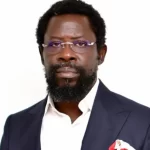




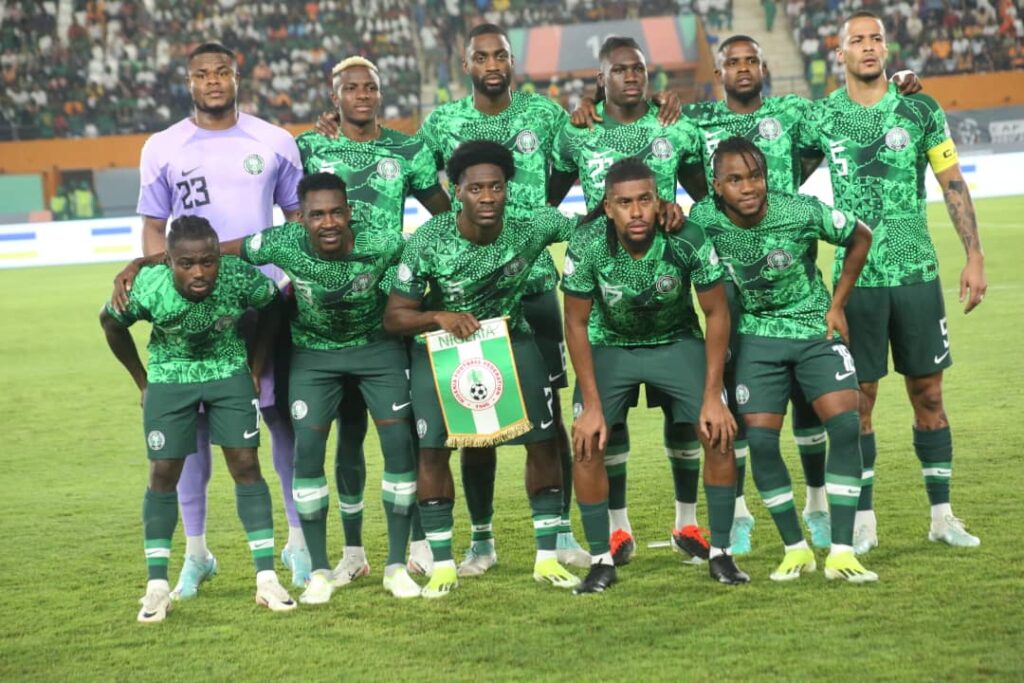
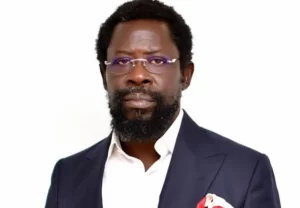
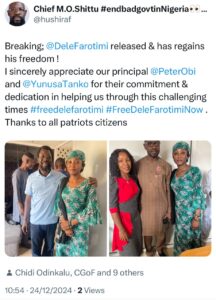
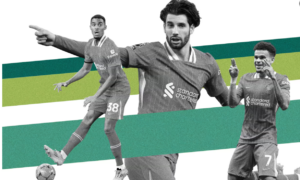

More Stories
Everybody seems to be having an off-day when they play against Liverpool
Amorim says Manchester United were nervous in rout by Bournemouth
Ange Postecoglou’s unserious Spurs exposed by serious Liverpool